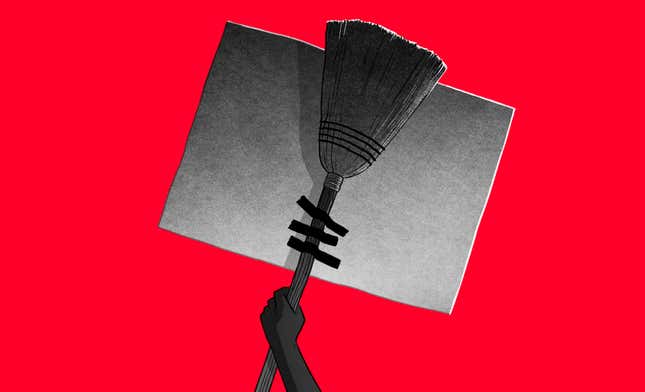What We Can All Learn From Domestic Workers' Silent Battle Against Sexual Harassment


Since the accusations against Harvey Weinstein came out two months ago, women have come forward to share their stories in droves and—perhaps even more surprising—they are being believed. Bad men are losing their jobs at an unprecedented clip. But as we read stories of entrenched workplace cultures that help harbor and protect abusers, it’s clear the culture of rampant sexual harassment and abuse won’t be fixed by bringing down a few powerful men.
We are now faced with the difficult work of shifting power and creating lasting reform. Luckily, we don’t have to start from scratch; many women have been doing this organizing work for a long time. While the bravery of high-profile women who have come forward has poured gasoline on a long-simmering fire, low-wage workers—who rarely have the option to go to the press and get their employer fired—have been fighting harassment out of the spotlight for decades.
One group that we can draw lessons from in particular is domestic workers, who have won crucial victories in their ongoing battle against sexual harassment in several states. In 2010, for instance, New York became the first state to pass a domestic workers bill of rights, which, along with labor protections like overtime pay and paid vacation, also included protections against sexual and racial harassment. Since the legislation passed in New York, workers have won bills of rights in seven other states, many of which include similar harassment and discrimination provisions.
“There is not a supervisor when we’re directly employed by a house, so who do we go to? We don’t have coworkers to tell, or a boss above someone when it’s all the same person.”
Domestic workers—the people who watch your children, clean your homes, and carry out other household tasks in private settings—were excluded from New Deal labor protections (along with agricultural workers) and have long battled for the same recognition that most other workers get.
While federal law protects employees from discrimination and harassment, that only applies to workplaces with 15 or more employees. Domestic workers often work alone, so they tend to lack these protections, despite often being especially vulnerable to abuse: According to a 2012 National Domestic Workers Alliance report, 95% of domestic workers are women and 54% are people of color. Nearly half are foreign-born and 36% of those surveyed in the report are undocumented immigrants. Their pay is often low; more than one-fifth of workers surveyed made less than their state’s minimum wage.
There is still a long way to go. Laws that protect domestic workers are only on the books in eight states and are often difficult to enforce. Even when domestic workers can file complaints, they often lack the resources to do so. Yet they have been able to make concrete gains when it comes to harassment and discrimination, despite the enormous barriers that they face, because of collective action. The fact that domestic have found non-traditional ways to organize (they are excluded from collective bargaining rights) is in and of itself an enormous achievement given these challenges. Their experiences should light the way for women everywhere, and their struggle should be taken up by all women who want to create a world free from sexual harassment.
Although the gulf between, say, a white, wealthy Hollywood actress and a working class person of color doing domestic work is enormous, the last few weeks have made it clear that workplace sexual violence affects us all. As Rocio Avila, a state policy director at NDWA, told Splinter, “Domestic workers face a much more complicated set of challenges, yet their organizing has allowed them to come and build alliances with other women in the women’s movement to collectively denounce that kind of violence.”
“You have to take that crap because that paycheck is coming and people are afraid to lose their jobs.”
Because their work conditions often makes them susceptible to abuse, the domestic workers and organizers I spoke with see protections against sexual harassment as central to their organizing work.
Isabel Escobar, who’s has been cleaning houses in Chicago for two decades, told Splinter through a translator that one of her previous employers, a college student, attempted to rape her. Thankfully, she was able to get away and never went back to the job. “We’re particularly vulnerable because we’re so isolated, each alone in a private home,” Escobar said. “There is not a supervisor when we’re directly employed by a house, so who do we go to? We don’t have coworkers to tell, or a boss above someone when it’s all the same person.” For Escobar, protections against harassment were one of the most important provisions in the Illinois domestic workers bill of rights that went into effect in January.
-

-

-

-

-

-

-

-

-

-

-

-

-

-

-

-

-

-

-

-

-

-

-

-

-

-

-

-

-

-

-

-

-

-

-

-

-

-

-

-

-

-

-

-

-

-

-

-

-

-

-

-

-

-

-

-

-

-

-

-

-

-

-

-

-

-

-

-

-

-

-

-

-

-

-

-

-

-

-

-

-

-

-

-

-

-

-

-

-

-

-

-

-

-

-

-

-

-

-

-

-

-

-

-

-

-

-

-












































































































